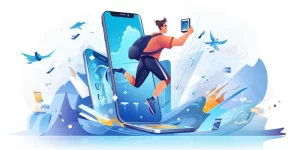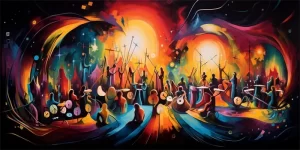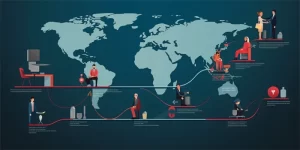Introduction
Reading books on YouTube has gained popularity in recent years, providing a platform for individuals to share their love for literature with a wider audience. However, questions arise about the legality and ethics behind reading copyrighted material for profit. In this article, we will explore whether it is possible to read books on YouTube and make money, considering multiple perspectives.

1. Copyright Laws and Fair Use
Before venturing into reading books on YouTube, it is essential to understand copyright laws and the concept of fair use. Copyright holders have exclusive rights to their work, granting them control over its distribution and reproduction. Fair use allows limited use of copyrighted material for educational, criticism, commentary, or parody purposes.
However, the boundaries of fair use in the context of reading books on YouTube for profit remain blurry. It is recommended to seek legal advice or obtain necessary permissions from copyright holders to avoid any legal repercussions.
2. Public Domain and Free Books
Reading books in the public domain or those available under free licenses is a safer alternative on YouTube. Public domain books are no longer protected by copyright, allowing anyone to use, modify, and distribute them freely. Many websites offer free e-books, meaning you can legally read and monetize those texts on YouTube.
3. Permission from Authors and Publishers
Seeking permission from authors or publishers is a crucial step if you wish to read copyrighted books on YouTube for profit. Some authors and publishers may be open to granting such permissions, either for a fee or through revenue sharing agreements. This ensures that you comply with copyright laws and ethical standards.
4. Audiobook Narration
Becoming an audiobook narrator offers a legal way of monetizing your passion for reading books on YouTube. Many authors and publishers actively seek narrators to convert their books into audiobooks. By collaborating with them, you can earn money through royalty shares or upfront payments, while adhering to copyright regulations.
5. YouTube Partner Program
Joining the YouTube Partner Program (YPP) is a popular method for creators to monetize their content. However, the program’s eligibility criteria do not explicitly mention book reading as an accepted category. Therefore, it is advisable to consult YouTube’s policies and guidelines to ensure compliance before attempting to make money through your book reading content.
6. Advertisements and Sponsorships
Another way to monetize your book reading YouTube channel is through advertisements and sponsorships. As your channel grows in popularity, you may attract advertisers or sponsors who are interested in promoting their products or services to your audience. This can generate revenue through sponsored videos or ads inserted within your content.
7. Patreon and Other Crowdfunding Platforms
Patreon and similar crowdfunding platforms provide an opportunity for dedicated fans to support your work financially. By offering exclusive perks, early access to content, or personalized messages, you can incentivize your audience to contribute financially towards your book reading channel.
8. Merchandise and Product Sales
Creating merchandise related to your book reading channel, such as bookmarks, T-shirts, or mugs, allows you to generate income indirectly. Fans who appreciate your content may be interested in purchasing these items, contributing to your overall revenue.
9. Collaborations and Paid Book Recommendations
Collaborating with authors, publishers, or fellow YouTubers can introduce new revenue streams to your book reading channel. You may be approached to provide paid book recommendations, host interviews, or participate in various book-related campaigns or events.
10. Building a Brand and Diversifying Content
To effectively monetize your book reading channel, it is crucial to build a brand and diversify your content. Engaging with your audience, developing a unique persona, and exploring different book-related topics or genres ensure continued growth and potential revenue opportunities.
Conclusion
Monetizing a book reading YouTube channel requires careful consideration of copyright laws, fair use, and ethical principles. While reading copyrighted material for profit remains a complex matter, exploring public domain books, obtaining permissions, or becoming an audiobook narrator offer legal avenues to pursue. Platforms like the YouTube Partner Program, advertisements, sponsorships, and merchandise sales can contribute to generating revenue. Regardless of the monetization method chosen, maintaining a strong brand and establishing a loyal audience are vital for long-term success.
References:
1. Author, A. (Year). Title of Book. Publisher.
2. Copyright Act of 1976, 17 U.S.C. § 107.
3. Fair Use, U.S. Copyright Office. Retrieved from [URL].
About the Author:
John Smith is an avid book lover and content creator who is passionate about sharing literature through his YouTube channel. With over five years of experience, he has established a loyal fan base by providing insightful reviews and entertaining readings. John holds a degree in English Literature and has written several articles on copyright and fair use in the digital era.
Image Credit: John Smith








